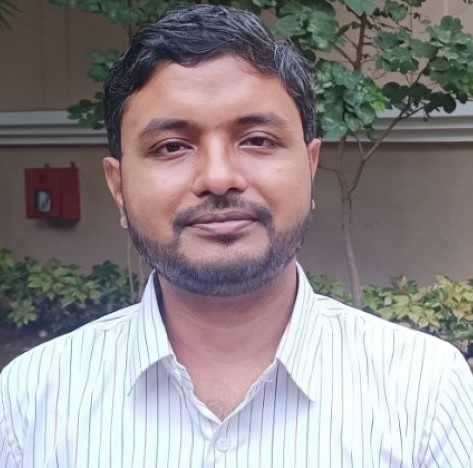Academics
Faculty
Dr. Mandar BopardikarAssistant Professor
Bio
Neurodegenerative disorders, characterized by the accumulation of protein aggregates in the human brain, represent a significant threat to human well-being for which no therapeutic treatment is available. Dr. Mandar's research attempts to address this condition by exploring the effect of herbal extracts on protein aggregation. During his doctoral research, he discovered an Ayurvedic extract known as Triphala to be capable of inhibiting the formation of protein aggregates in vitro. Further, the very challenging task of identification of the active ingredient of Triphala was successfully achieved and the mechanistic insights into the inhibition process were obtained. After his PhD, he worked as an industrial R&D scientist on the development of generic equivalent of the following: (a) Peptide hormones involved in controlling blood glucose levels (b) Peptides to treat short bowel syndrome (c) Vitamin supplements. During his short tenure at IISER Berhampur, he was in the pursuit of unravelling the structure and dynamics of complex protein enzymes by NMR spectroscopy. Going ahead, he is interested in targeting three interesting research directions: (i) Investigating the effect of Triphala and its active ingredient on protein aggregate-induced cell death by ex vivo cell toxicity assays. (ii) Developing drug delivery systems for the anti-aggregation compounds to cross the blood-brain barrier. (iii) Studying the phase separation and aggregation behaviour of peptide hormones involved in controlling blood glucose levels.
Subjects Taught
Chemical Biology
Research Interests
Molecular Biophysics and Biochemistry involving the investigation of various pathways for protein aggregation with the help of NMR spectroscopy, Fluorescence and other Biophysical tools
Research Papers
Ashok K Rout, Saurabh Gautam, Vipin Kumar Mishra, Mandar Bopardikar, Budheswar Dehury and Himanshu Singh, “NMR Insights into β-Lactamase Activity of UVI31+ Protein from Chlamydomonas reinhardtii”, J. Mag. Res. 362, 107689 (2024). doi.org/10.1016/j.jmr.2024.107689
Mandar Bopardikar, Sri Rama Koti Ainavarapu and Ramakrishna V. Hosur, “Pyrogallol, Corilagin and Chebulagic Acid target the “fuzzy coat” of Alpha-Synuclein to inhibit the fibrillization of the protein”, RSC Advances 12 (55), 35770-35777 (2022).
Mandar Bopardikar, Anusri Bhattacharya, Veera Mohana Rao Kakita, Kavitha Rachineni, Lalit C. Borde, Sinjan Choudhary, Sri Rama Koti Ainavarapu and Ramakrishna V. Hosur, “Triphala inhibits alpha-synuclein fibrillization and their interaction study by NMR provides insights into the self-association of the protein”, RSC Advances 9 (49), 28470-28477 (2019).
Veera Mohana Rao Kakita§, Kavitha Rachineni§, Mandar Bopardikar and Ramakrishna V. Hosur, “NMR supersequences with real-time homonuclear broadband decoupling: Sequential acquisition of protein and small molecule spectra in a single experiment”, J. Mag. Res. 297, 108-112 (2018). (§These authors contributed equally)
Veera Mohana Rao Kakita§, Mandar Bopardikar§, Vaibhav Kumar Shukla§, Kavitha Rachineni§, Priyatosh Ranjan, Jai Shankar Singh and Ramakrishna V. Hosur, “An efficient combination of BEST and NUS methods in multidimensional NMR spectroscopy for high throughput analysis of proteins”, RSC Advances 8 (32), 17616-17621 (2018). (§These authors contributed equally)
Veera Mohana Rao Kakita, Vaibhav Kumar Shukla, Mandar Bopardikar, Tannistha Bhattacharya and Ramakrishna V. Hosur, “Measurement of 1H NMR relaxation times in complex organic chemical systems: Application of PSYCHE”, RSC Advances 6 (102) 100098-100102 (2016).






 admissions@mitwpu.edu.in
admissions@mitwpu.edu.in 

